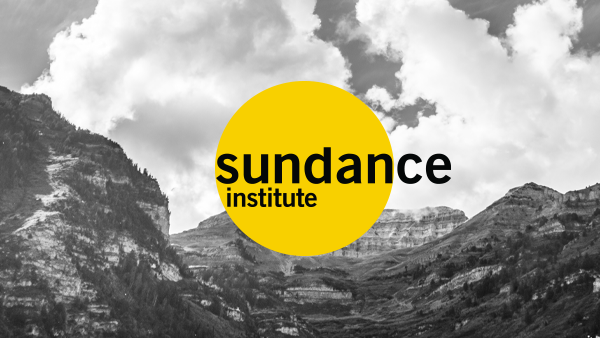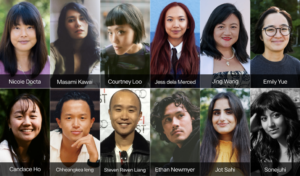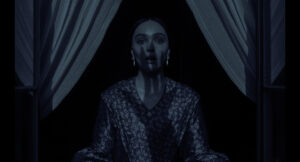Patricia Finneran
“Part of my being here is thanks to the Freedom Riders” —Stanley Nelson
On a warm September Wednesday, Stanley Nelson and I took a livery service from his office in Harlem and arrived in The Bronx just as school was getting out. The mix of young people hanging out talking reflected the cultural make-up of the only New York borough where Hispanics / Latinos make up more than half of the population of 1.3 million; and one third of the population is black.*
Amidst the mid-50’s red brick fortresses of New York schools, a cream-colored low-rise building with shiny chrome signage stood out. This is something different.
We enter a high school auditorium done in acoustically sound blonde wood, with comfy red seats and a movie screen at the center of a classic proscenium stage. Impressive. The Cinema School is a 3-year old New York City public high school. Each student has competed for acceptance and will graduate with a broad exposure to the art and craft of film.
The young audience for this after-school conversation with the Emmy Award winning filmmaker of Freedom Riders has been focused on narrative filmmaking; they are full of questions about documentary.

A young woman wants to know if anyone that Stanley approached to interview told him “no, they didn’t want to be part of the film”. This provides an interesting segue to the film’s subjects, the nature of real-life storytelling, and real-life heroes. Stanley explained “these were regular people, they weren’t Malcolm X or Martin Luther King… They were young people who said ‘we’re not going to live our lives like this any more’.”
Just as the freedom riders were excited to tell their story 50 years on, Stanley Nelson is excited that the film has connected with so many people, and that the freedom rider’s story of a group of individuals who envisioned changing their world, and did, is being recognized.
Stanley Nelson, who is African American, grew up in New York City. He shared that when he was in high school in the late 60’s the notion of becoming a filmmaker “didn’t exist for me”. Those young people challenged segregation and fueled the civil rights movement with the power of youth. They made real change, and Stanley acknowledged, “part of my being here is thanks to the Freedom Riders“.
Whatever the color of their skin, they already envision becoming storytellers, and their dreams are being supported with education, and opportunity.
Clearly, Stanley is a role model for them: his awards winning career is impressive, but he’s absolutely on their level. When it came time to leave, the students surrounded him, gently demanding autographs and photos with Stanley. Lots of Hollywood filmmakers come to support the Cinema School and the students never before bothered to ask for autographs. Stanley of course obliged, paying it film forward.
*per US Census data.




